Xoan singing originated in the Hung King era, associated with ancestor worship and community rituals. The first xoan songs were composed and performed in ceremonies at Lai Len Temple, Thet Temple and other relics around the Hung Temple area.
Over time, Xoan singing gradually spread to many localities, becoming an indispensable part of folk cultural activities. Xoan singing groups were formed and taught from generation to generation, preserving intact the unique features of this art form.
Experiencing many historical events, Xoan singing once faded away due to war, social upheaval and changes in cultural life.
However, thanks to the efforts of artisans and local authorities, Xoan singing has been strongly restored. In 2011, UNESCO recognized Phu Tho Xoan singing as an Intangible Cultural Heritage in need of urgent protection. In 2017, this art form continued to be upgraded to Representative Intangible Cultural Heritage of Humanity, marking an important turning point in the journey of preserving and promoting the heritage of the authorities and people of Phu Tho province.
Meritorious artist Bui Thi Kieu Nga (front row, right), head of the Thet xoan guild. |
To preserve Xoan singing, the authorities have included this art form in the educational program at schools in Phu Tho province. The Department of Culture, Sports and Tourism in coordination with the Department of Education and Training has deployed it to all levels of education, each level will have its own curriculum suitable for each class to achieve the best results, inviting Xoan singing artists to teach.
Elderly artisans enthusiastically guide the younger generation, helping them approach and inherit the heritage in a systematic way. At the same time, schools will organize for children to learn and experience real xoan singing at Lai Len Temple, Hung Lo communal house, etc.
Here, the children learn and participate in activities: Organizing incense offering ceremonies; introducing and explaining; learning about the history and value of xoan singing, interacting with artists and experiencing unique xoan singing melodies. They also perform at xoan singing competitions and festivals in the province.
At the annual Hung Kings' Commemoration Festival, artists and students will perform xoan singing during the festival at the Hung Temple Relic Site, introducing to visitors from all over the world the intangible cultural heritage of humanity of the homeland.
The above activities will help students better understand the cultural and historical values of this art form, while arousing pride and awareness of preserving national heritage.
Recognizing the importance of Xoan singing, Phu Tho province has incorporated this art form into tours associated with the places where the performances take place, helping visitors experience and learn about local history and culture.
At tourist attractions such as Hung Temple Historical Site, Lai Len Temple, Hung Lo Communal House, An Thai Communal House... the main performers are artisans from the original xoan guilds of Phu Duc, Thet and An Thai.
Visitors coming here, in addition to listening to singing, can also directly learn and practice with the artists, creating interesting and profound experiences, thereby attracting a large number of tourists, especially young people and international tourists.
And the program "Hat Xoan Lang Co" has now become a highlight activity, leaving an impression on the people and tourists from all over the world every time the Hung Kings' death anniversary occurs.
This year, the ancient village xoan singing program is held from April 3 to April 7 (from the 6th to the 10th day of the third lunar month) at historical sites associated with the Hung King worship.
However, despite significant achievements, the conservation of Xoan singing still faces many challenges.
First is the issue of the next generation. Currently, the number of elderly artisans remaining is not much, while the younger generation is less interested in traditional art. This poses an urgent need to teach and encourage the younger generation to participate in preserving the heritage.
Conservation programs must be maintained and expanded, and youth encouraged to participate in xoan singing classes.
Besides, in the context of integration and globalization, popular culture is dominating the entertainment market, creating fierce competition with traditional art forms.
Researcher Nguyen Quang Long talks with xoan artisans. |
For xoan singing to stand firm, there needs to be innovation in the way of approaching the audience, while at the same time combining original preservation and creativity suitable for the times. At the same time, it is necessary to promote communication and promote xoan singing on digital platforms, bringing this art form closer to domestic and foreign audiences.
And combining Xoan singing with tourism and education not only helps preserve this art form but also contributes to promoting Vietnamese culture to the world, affirming the sustainable value of the representative intangible heritage of humanity.
Source: https://nhandan.vn/dua-di-san-hat-xoan-den-voi-cong-chung-post869181.html


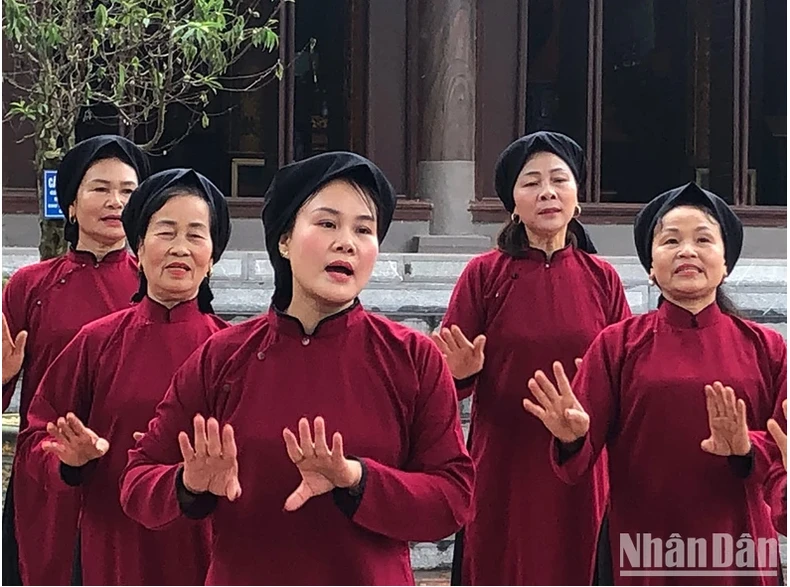
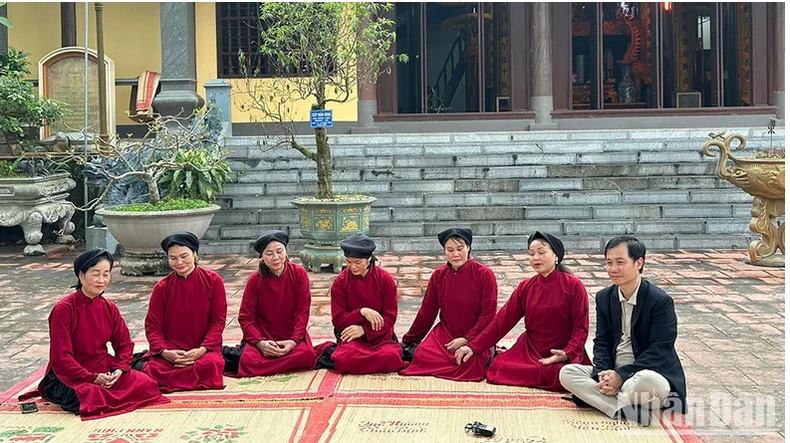

![[Photo] Unique folk games at Chuong Village Festival](https://vstatic.vietnam.vn/vietnam/resource/IMAGE/2025/4/10/cff805a06fdd443b9474c017f98075a4)

![[Photo] Opening of the 11th Conference of the 13th Party Central Committee](https://vstatic.vietnam.vn/vietnam/resource/IMAGE/2025/4/10/f9e717b67de343d7b687cb419c0829a2)

![[Photo] April Festival in Can Tho City](https://vstatic.vietnam.vn/vietnam/resource/IMAGE/2025/4/10/bf5ae82870e648fabfbcc93a25b481ea)
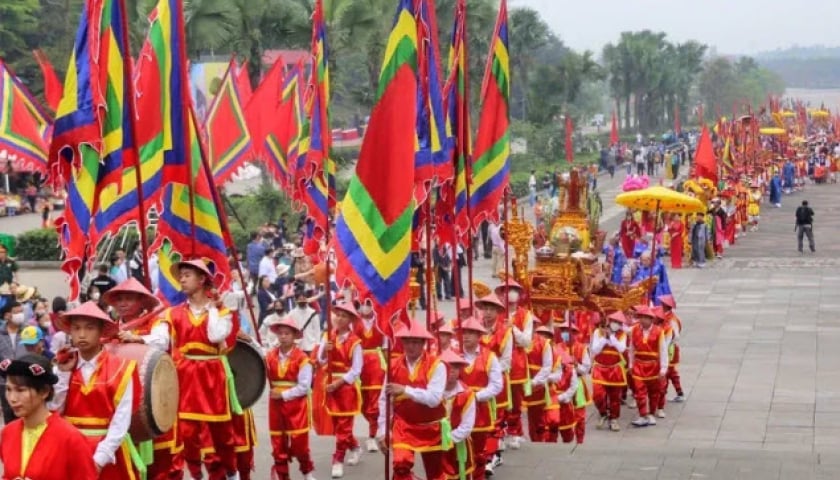

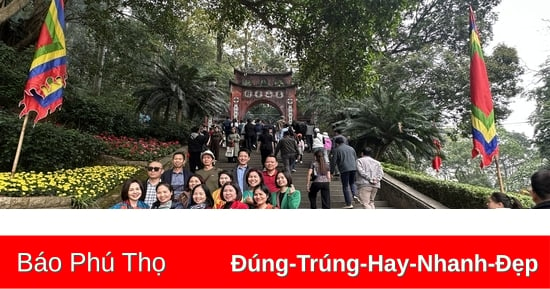

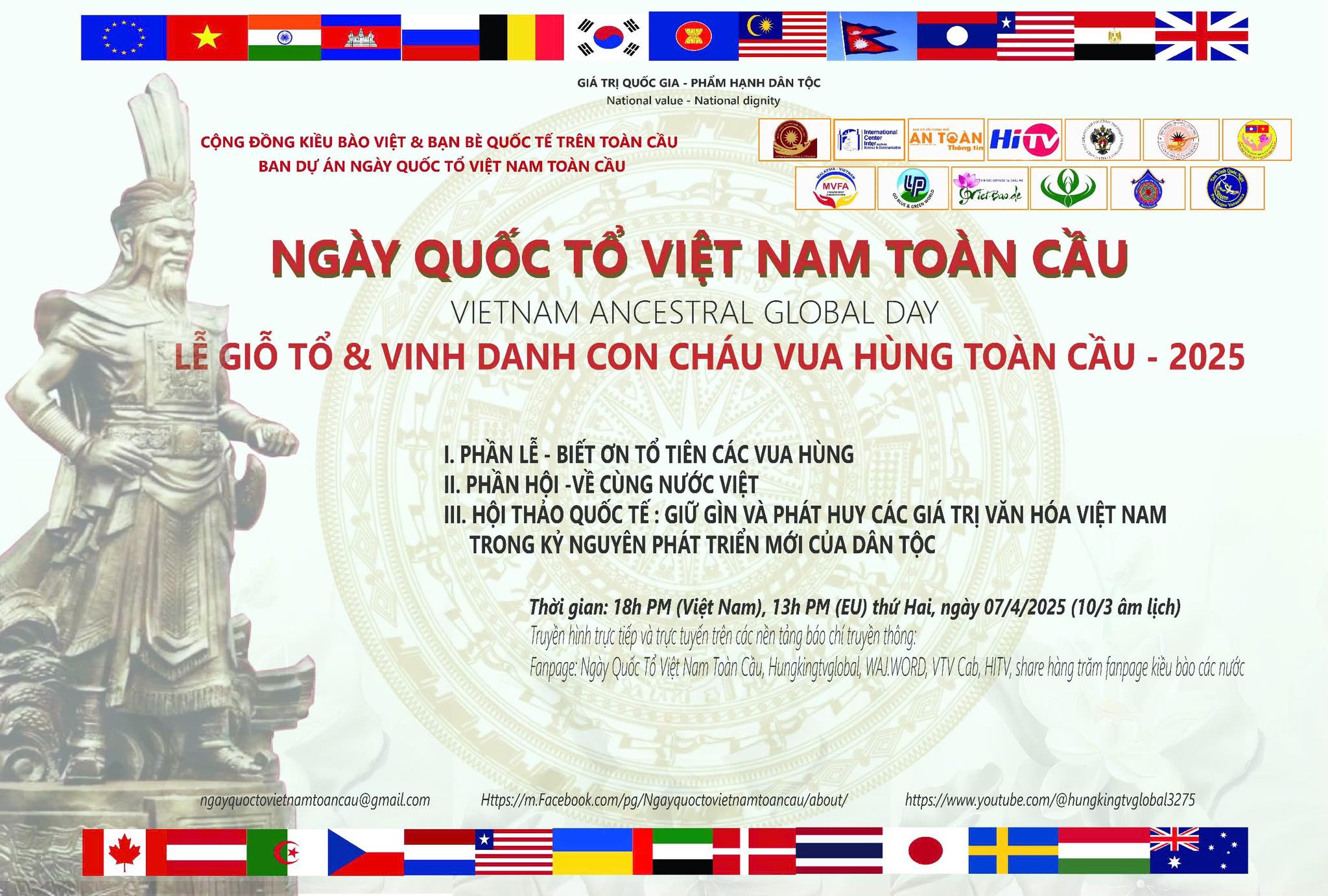

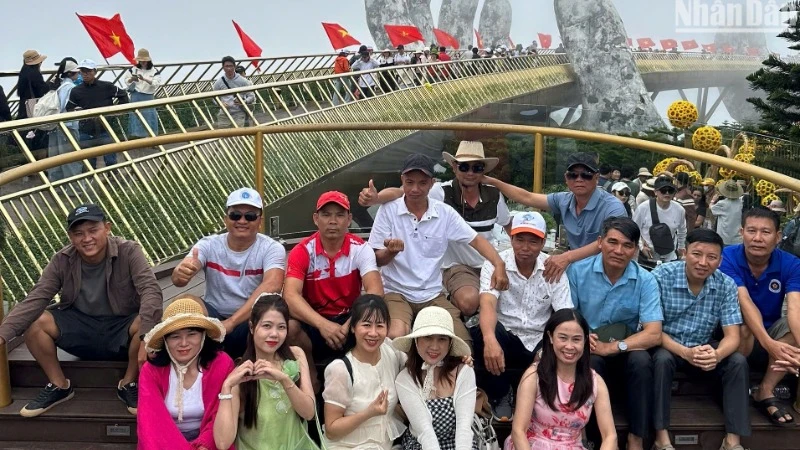


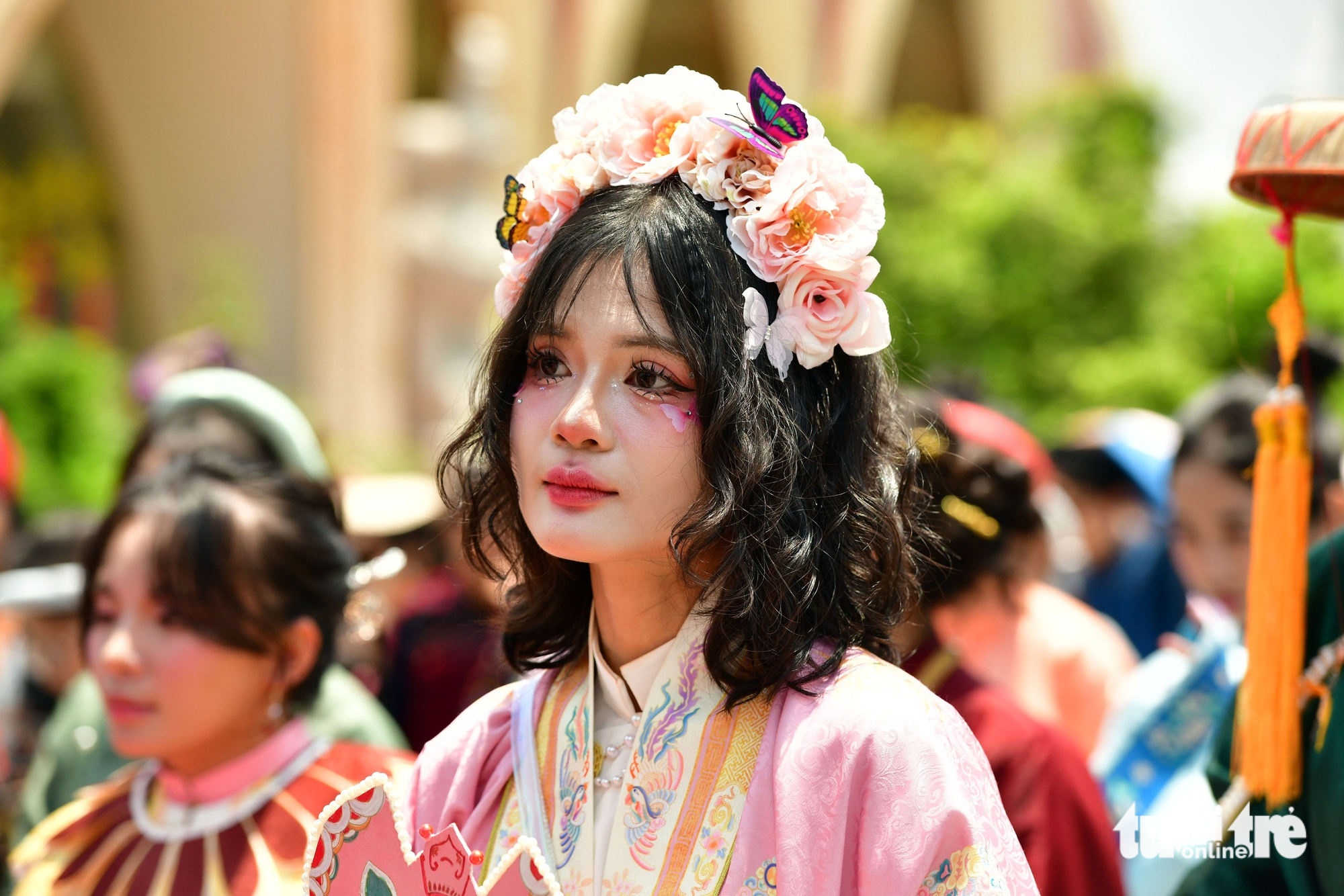











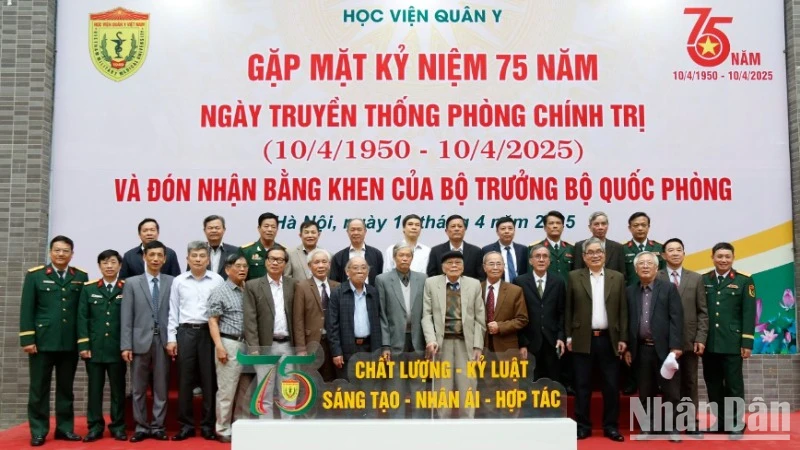
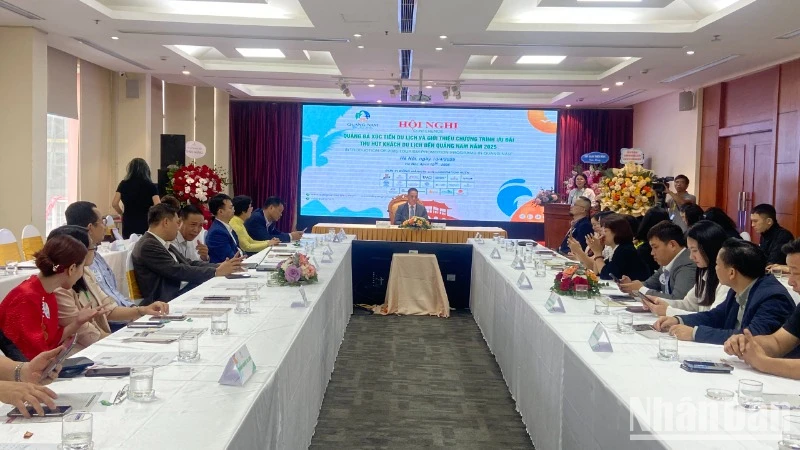
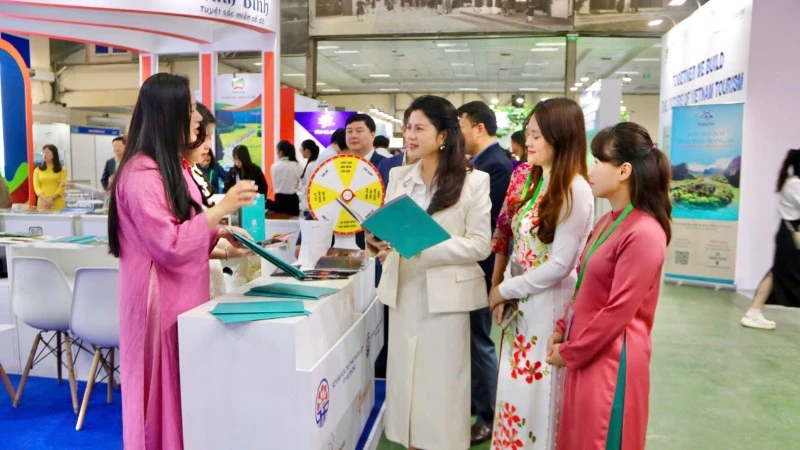
![[Photo] Prime Minister Pham Minh Chinh commends forces supporting Myanmar in overcoming earthquake consequences](https://vstatic.vietnam.vn/vietnam/resource/IMAGE/2025/4/10/e844656d18bd433f913182fbc2f35ec2)




















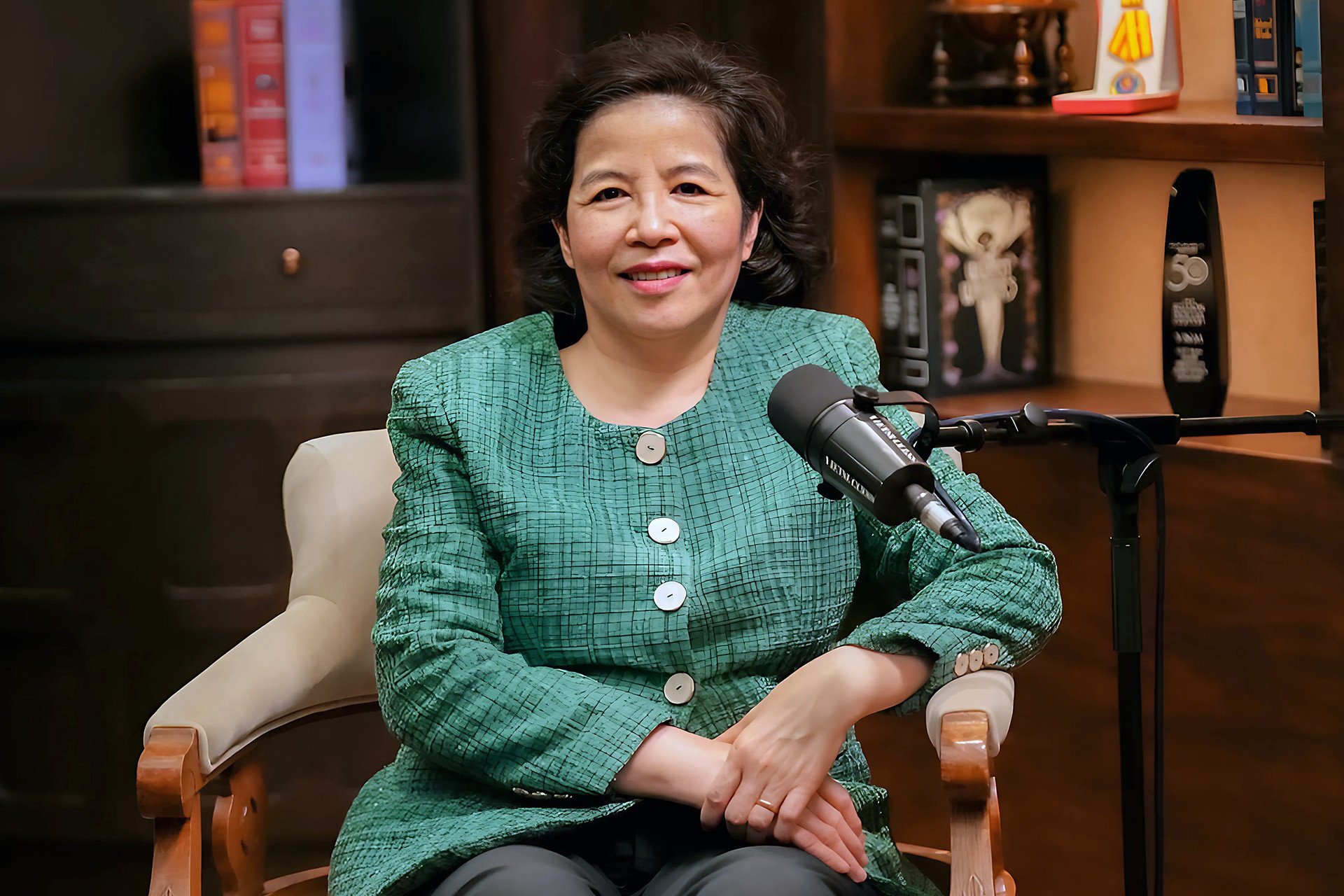





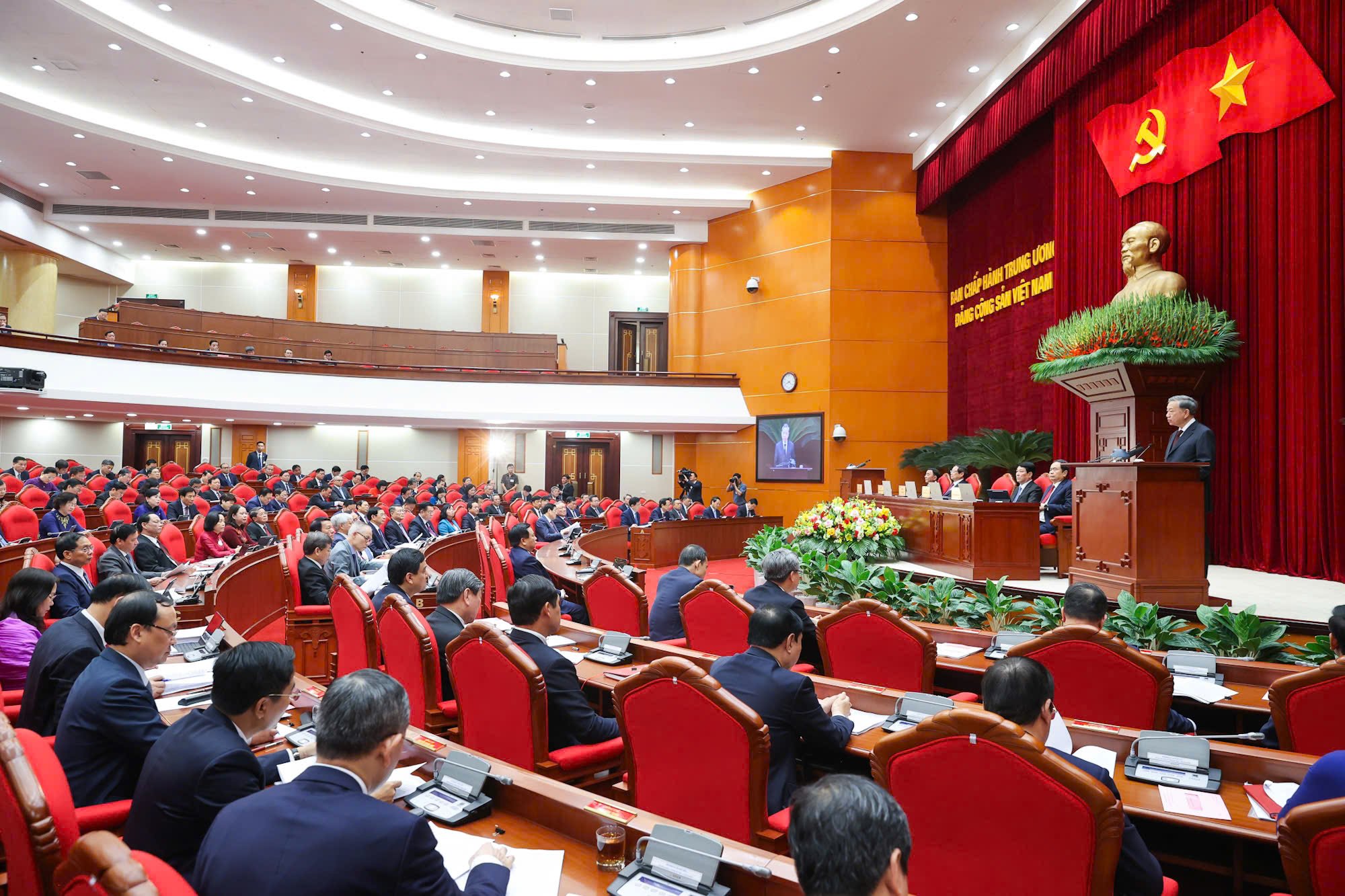
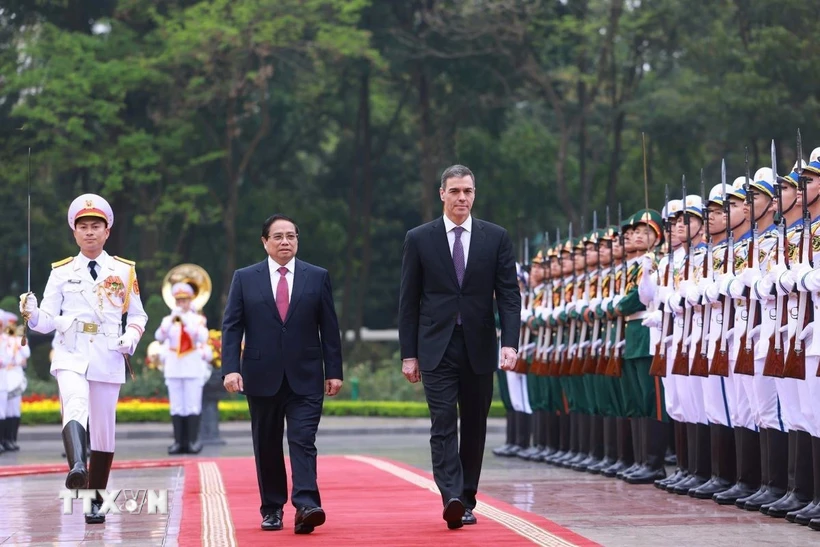



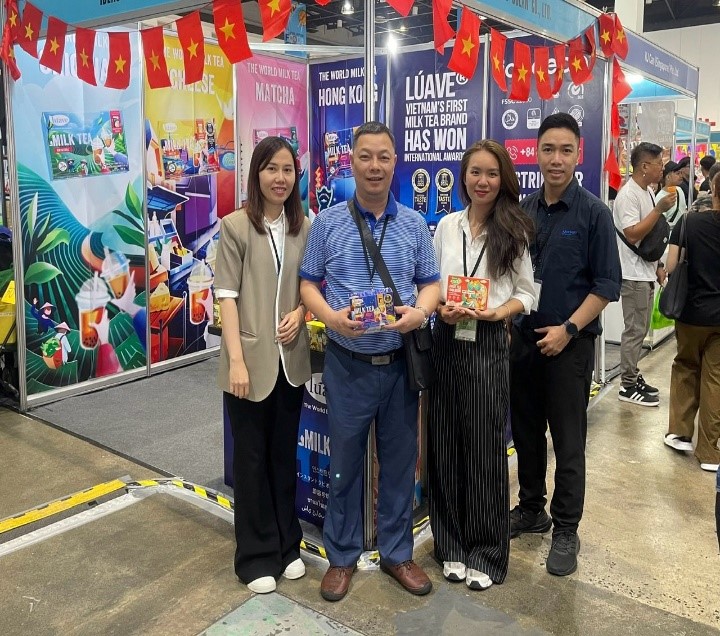




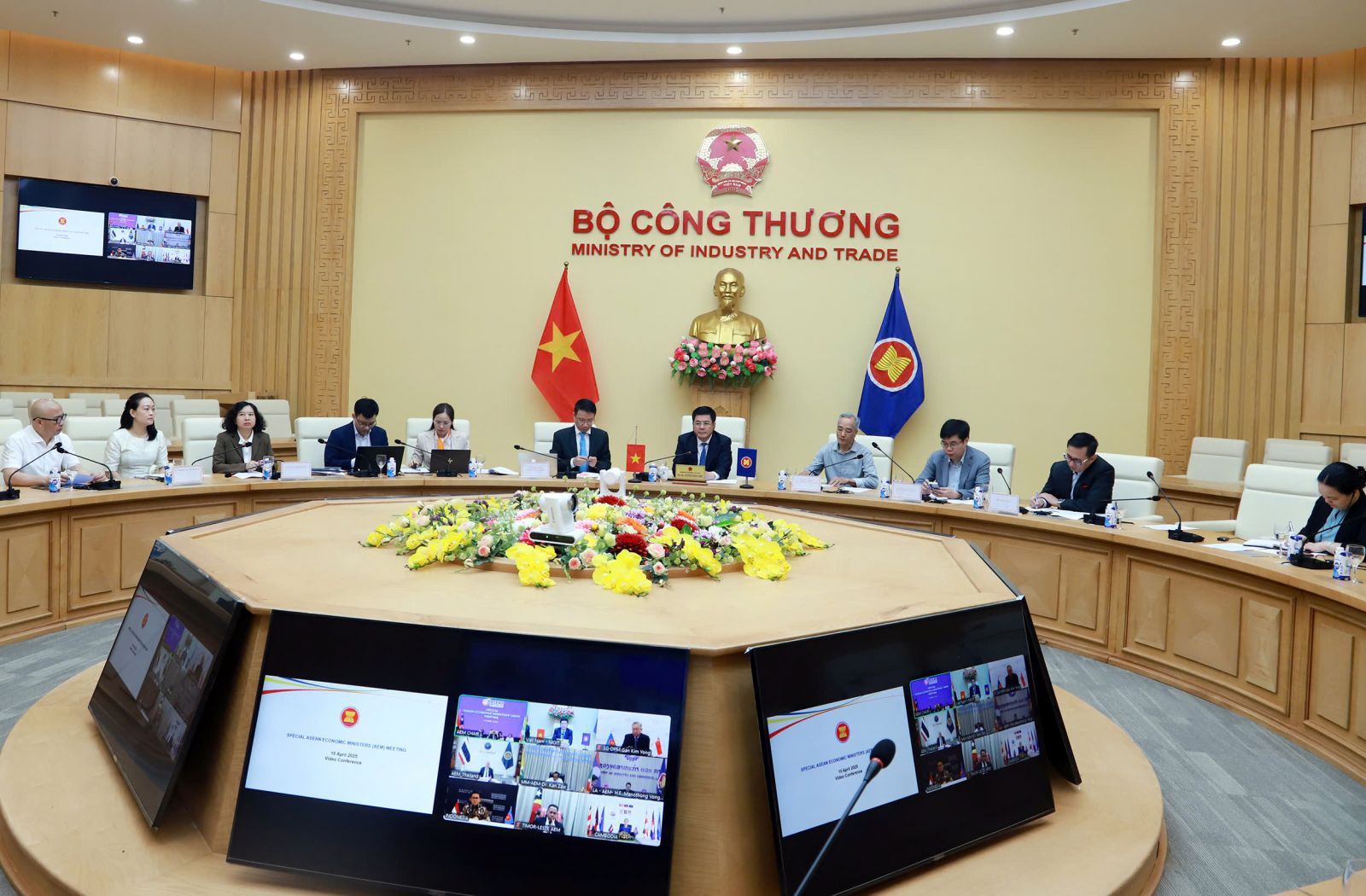
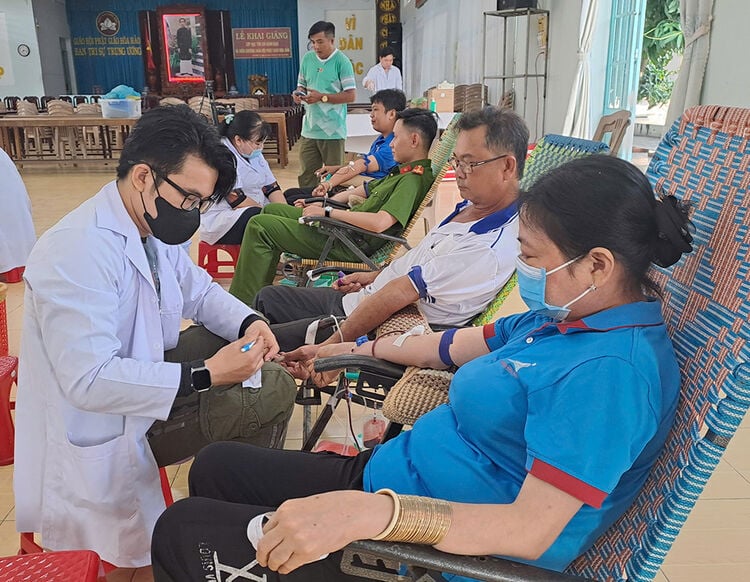

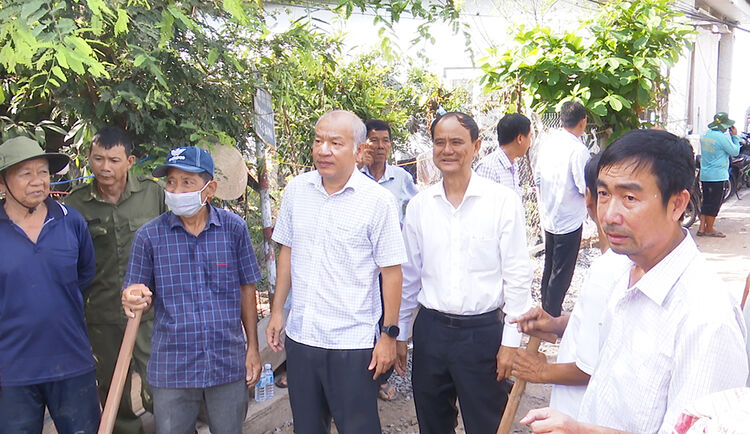
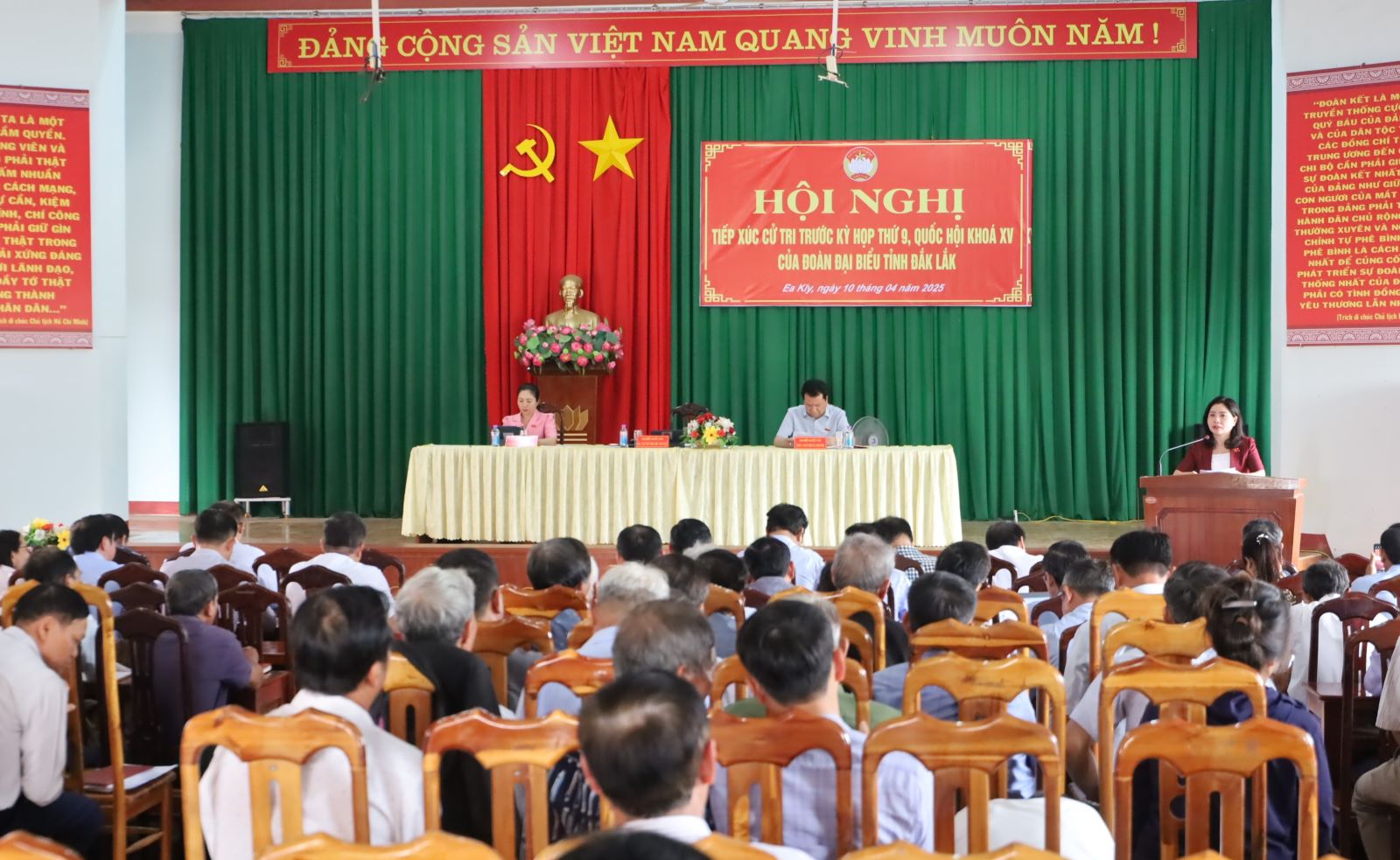
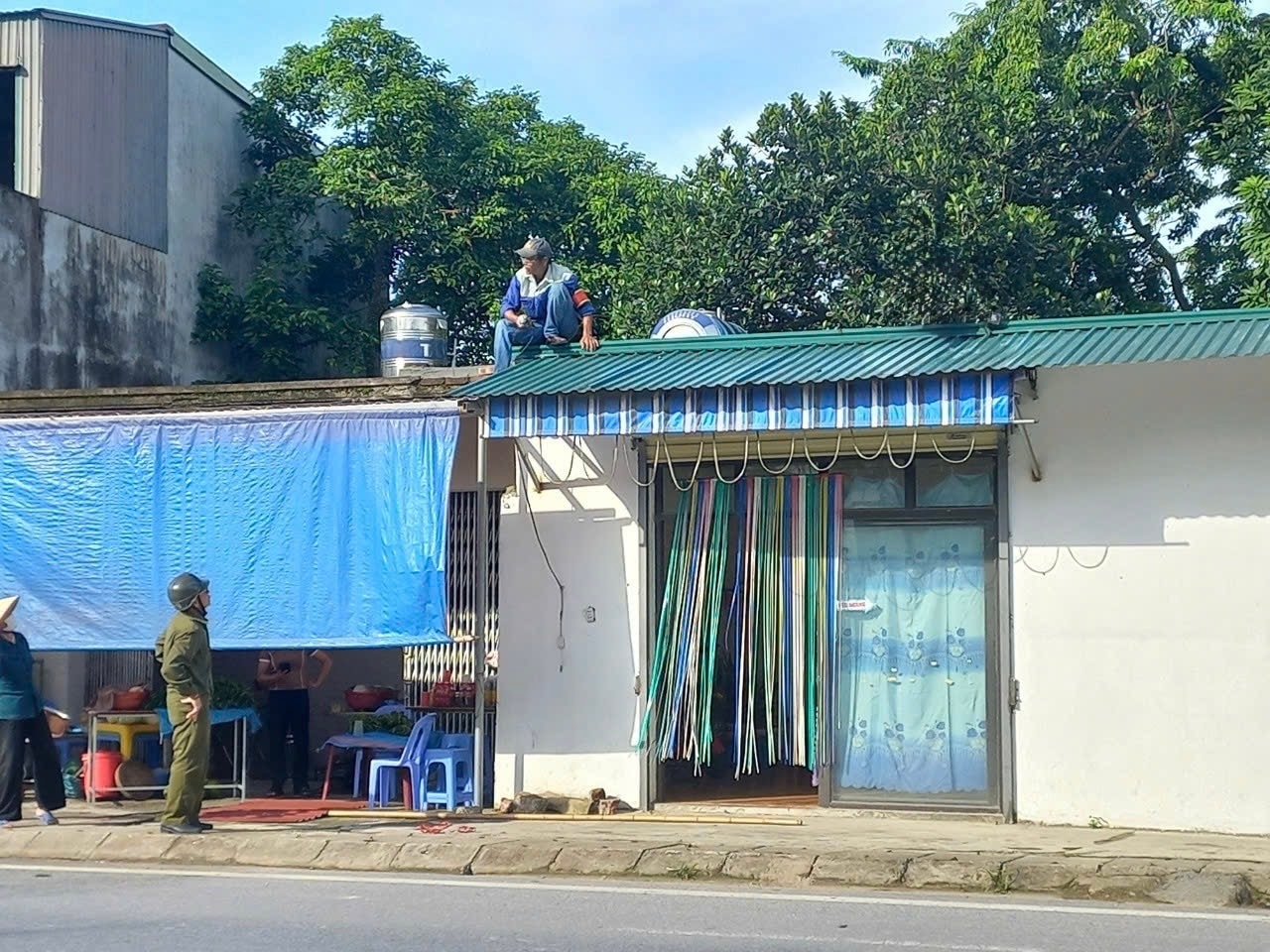
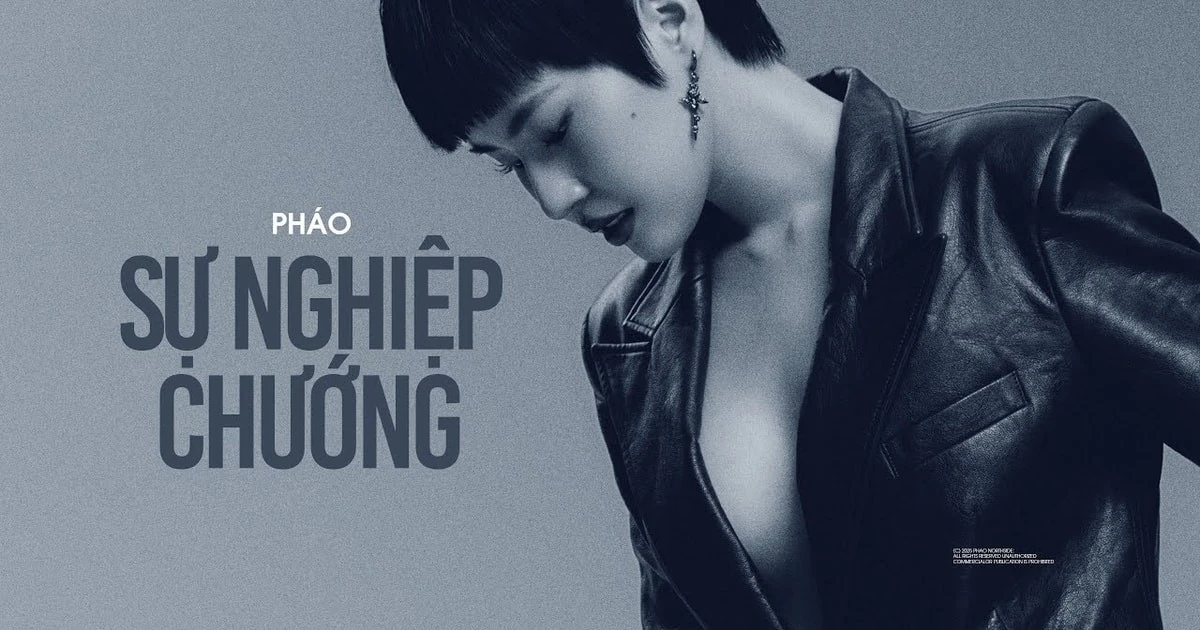

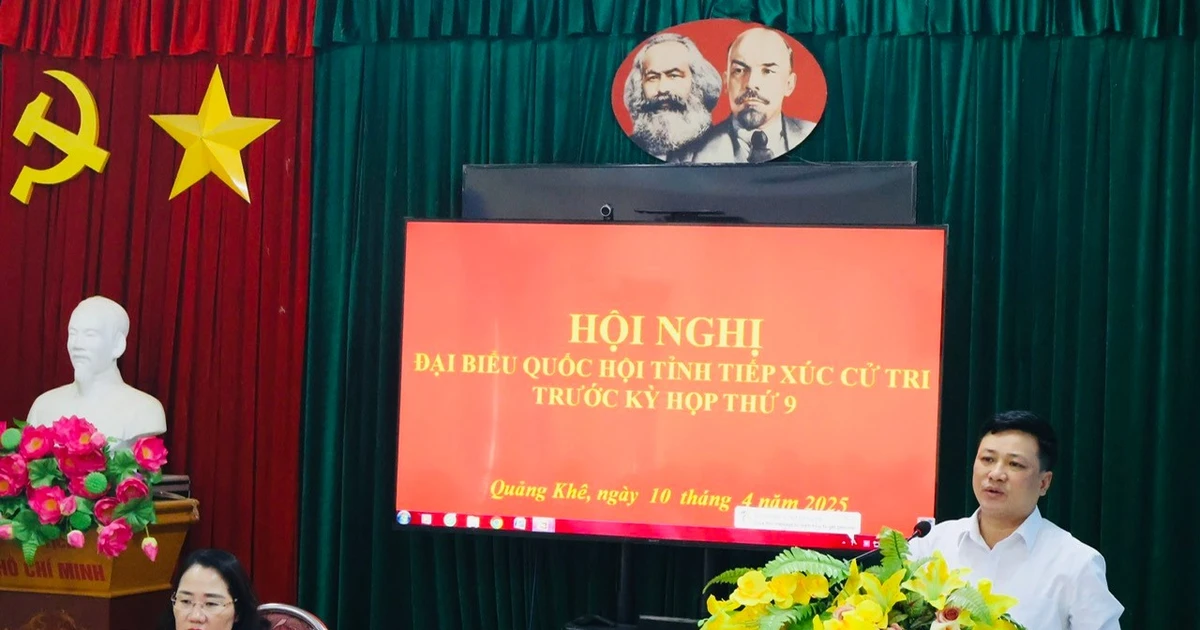








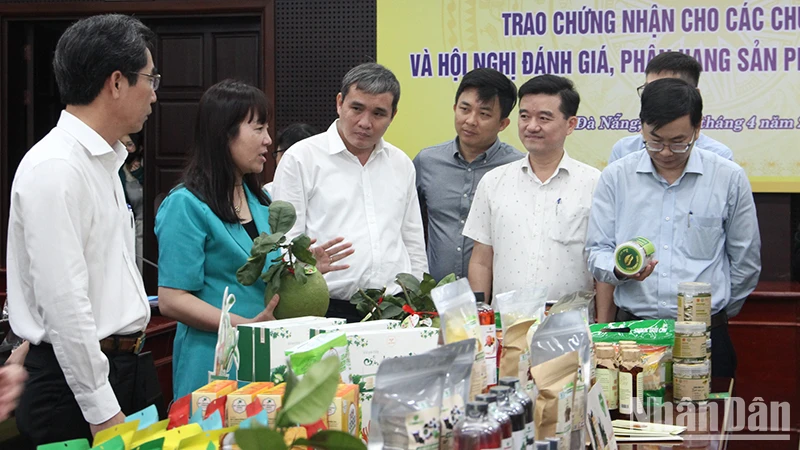
Comment (0)